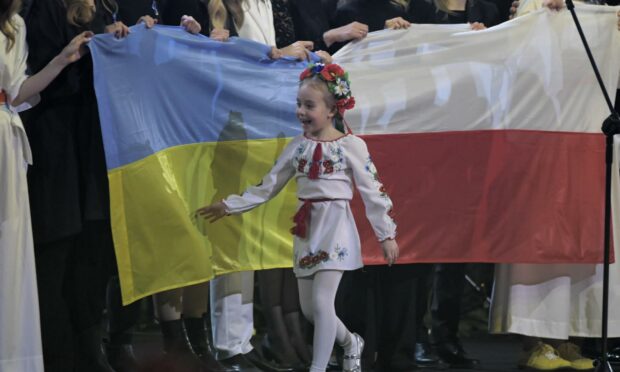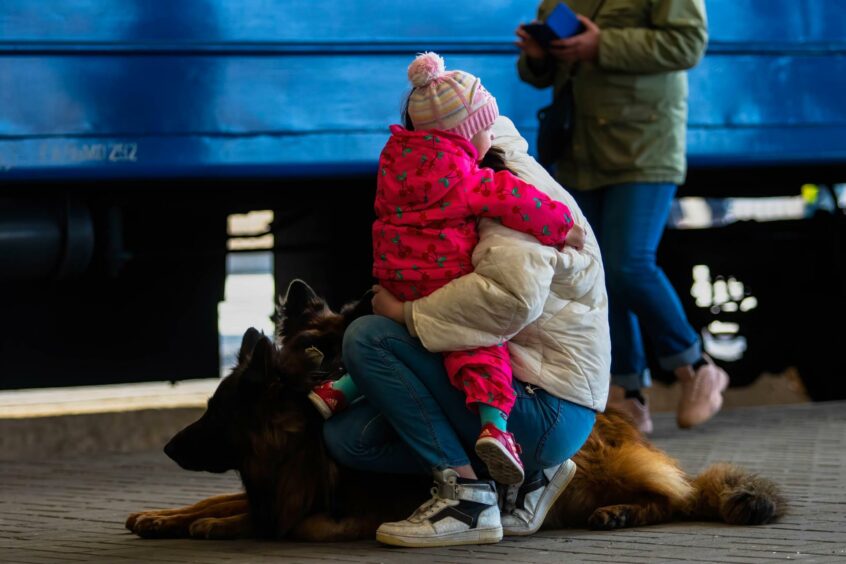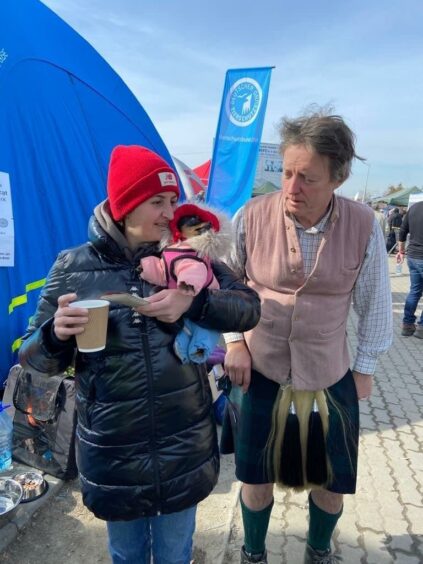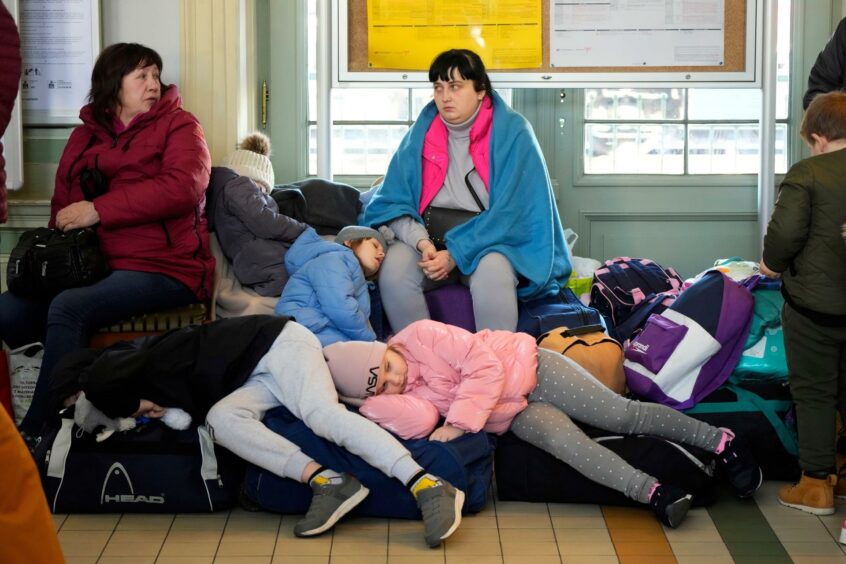Food, safety and shelter. Three basic things humanity can give to those fleeing the trauma of war. Being made welcome is another.
Since February 24 we have all watched in horror as events in Ukraine unfold.
We see the desperate tide of humanity, mostly women, children and the elderly, fleeing on foot in the bitter cold, people carrying their children, carrying their pets, clutching their meagre possessions, hoping to escape with their lives and save those they love.
Ordinary people fleeing war
They are ordinary people, like you and I, fleeing the apocalypse their homes have become.
We get hope from stories – the 12-year-old German Shepherd being carried over his owner’s shoulder to safely across the Polish border. Three cheers to Poland for opening its borders to pets, too.
Or seven-year-old Amelia Anisovych singing ‘Let It Go’, from Disney’s Frozen, in a Kyiv bomb shelter. She survived to sing again, in the same clear little voice, at a fundraising concert in Lodz, Poland, where she is now a refugee.
There’s Perthshire adventurer David Fox-Pitt, wearing his kilt while serving hot soup and pizza to exhausted people who made it to safety – he among the many from Scotland and the UK who drove to the border with food and supplies, to help where they can.
It feels so close to us – not least because so many Scots have personal family ties to Eastern Europe. In 2019 an estimated 97,000 people in Scotland were Polish, for example, settled here largely as a result of the Second World War..
Outpouring of support
In the UK and beyond we still carry the scars of the last great war, to which the world said, never again. You or I are powerless to influence the escalation or otherwise of the conflict in Ukraine, but we can help the victims.
Judging by the huge outpouring of support for its refugees, people are doing anything they can to provide, food, shelter and safety to some of the estimated 10 million Ukrainians already displaced by the conflict.
That’s a drop in the ocean when you think the UNHCR estimated, in mid-2021, 84 million people globally were displaced as a result of conflict or fleeing persecution in their homeland.
Even in peacetime, even when you have money, a place to go, the right paperwork, it’s not easy leaving your home country to live somewhere else.
I know, I’ve done it twice – Scotland is the third place I now call home. Compared to the plight of refugees I was lucky, and I came here for love. But it’s still not an easy thing to do.
Being made welcome counts for more than you realise.
The sight of prams lined up for Ukrainian mothers at a station in Poland is another iconic image of this conflict.
So too the many images of children being given toys on entry, and volunteers giving everything from food and water to nappies to the people who have fled with nothing but what they can carry.
Scotland was the first in the UK to offer a super-sponsor scheme, which essentially means, with the government as the sponsor, Ukrainian refugees can get here faster. The first are already arriving.
Scotland’s sincere welcome
This week, some 50 Ukrainian orphans landed at Edinburgh airport after being rescued by Hibs supporters via the charity they set up, Dnipro Kids.
Scotland’s Railways have just announced their plans for a warm welcome too.
Meeting points have been set up at Edinburgh Waverley and Glasgow Central stations, with dedicated staff on hand to help with travel advice and direct people to the help and resources available from local authorities and the Scottish Government.
A picture on the Railway Hub website shows a Welcome sign in Ukraine colours, next to some sincere-looking pot plants and flowers. It’s simple, and earnest.
Of course, Ukraine is not the only war people are fleeing. Scotland has already welcomed Syrian refugees, refugees fleeing Afghanistan after the Taliban takeover last year.
Refugees have been fleeing the ongoing conflict in Palestine for many years, as they have the genocide in Myanmar – it is a depressingly long list.
Reams of global research shows, overwhelmingly, refugees make a positive contribution to the countries that give them refuge.
The welcome is not forgotten
The food, shelter and safety in turn results in people who make a positive contribution to their new country and communities. The welcome is not forgotten.
Sadly, and inevitably too, more right-wing factions use these situations to stir up division.
Misinformation is spread around housing and benefits allocations, for example, and an ‘us and them’ narrative springs up in some mainstream and social media.
How would you feel?
Don’t fall for it. It’s simply not true, and it’s easy to find that out for yourself.
The simplest way to understand it is this.
How would you feel if it were you, fleeing with your children in your arms and a bag with everything you own, as bombs rain down around you and your home is on fire?
All you’d want is food, safety and shelter. And to be made welcome.






